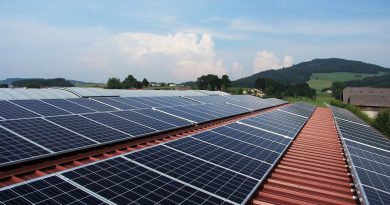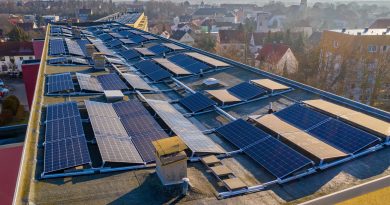Solar Rooftop Subsidy in Assam
Assam, with its diverse topography and abundant sunlight, presents a significant opportunity for solar energy harnessing. Solar power not only addresses energy needs but also contributes to environmental sustainability. As traditional energy sources deplete, the transition to renewable energy becomes crucial for Assam’s future.
Table of Contents
Government Initiatives and Policies
The Government of India, through the National Solar Mission, aims to establish India as a global leader in solar energy. Assam, aligning with this mission, has introduced various state-specific policies to encourage solar energy adoption. These policies focus on making solar power accessible and affordable for both residential and commercial users.
Overview of Solar Rooftop Subsidies
Solar rooftop systems are an effective way to utilize available roof space for generating electricity. These systems reduce electricity bills, decrease carbon footprints, and increase energy independence. Subsidies play a crucial role in offsetting the initial installation costs, making solar power more affordable for a broader audience.
Central Government Subsidies
The central government provides several incentives to promote solar rooftop installations. Key schemes include:
- Subsidy on Capital Cost: The Ministry of New and Renewable Energy (MNRE) offers a capital subsidy covering up to 30-40% of the installation cost.
- Tax Incentives: Benefits such as accelerated depreciation and tax holidays are available for solar project developers.
- Subsidized Loans: Access to low-interest loans through various financial institutions is facilitated by the government.
State Government Subsidies
In addition to central subsidies, the Assam state government offers specific programs to encourage rooftop solar installations. These include:
- Direct Financial Assistance: The state provides additional subsidies to cover installation costs.
- Net Metering: Consumers can offset their electricity bills by feeding excess solar power back into the grid.
- Incentives for Rural Areas: Special programs target rural areas to promote solar adoption where grid electricity is unreliable.
Assam Energy Development Agency (AEDA)
The Assam Energy Development Agency (AEDA) is pivotal in promoting renewable energy in the state. AEDA implements various programs to facilitate the adoption of solar energy, including:
- Solar Home Systems: Providing solar-powered systems to rural households.
- Community Solar Projects: Establishing solar power plants for community use in off-grid areas.
- Training Programs: Educating local communities on the benefits and installation of solar systems.
Residential Solar Rooftop Subsidies
Residential subsidies aim to make solar power accessible to homeowners. Key benefits include:
- Reduced Installation Costs: Subsidies cover a significant portion of the upfront costs.
- Energy Savings: Homeowners can significantly reduce their electricity bills.
- Environmental Impact: Solar energy reduces reliance on fossil fuels, contributing to a greener environment.
The application process for residential subsidies involves submitting an application to AEDA or the MNRE, along with necessary documentation such as proof of residence and a detailed project report.
Commercial Solar Rooftop Subsidies
Businesses can also benefit from solar rooftop subsidies, which help in reducing operational costs and enhancing sustainability efforts. Key benefits include:
- Financial Support: Subsidies lower the initial investment required for solar installations.
- Operational Savings: Businesses can reduce electricity costs significantly.
- Corporate Social Responsibility (CSR): Adopting solar energy enhances a company’s CSR profile.
The application procedure for commercial subsidies involves submitting a detailed business case and project proposal to the relevant government agency.
Implementation Process for Solar Rooftop Systems
Implementing a solar rooftop system involves several steps:
- Site Assessment: Conducting a site survey to determine suitability.
- System Design: Designing the system based on energy needs and site conditions.
- Installation: Installing the solar panels, inverter, and other components.
- Grid Connection: Connecting the system to the grid (if applicable).
- Inspection and Approval: Getting the system inspected and approved by relevant authorities.
Conclusion
Solar rooftop subsidies in Assam have significantly impacted the state’s energy landscape, making solar power more accessible and affordable. Continued support and innovative policies will be crucial in achieving greater solar energy adoption and fostering long-term economic and environmental benefits.
FAQs
-
What is the National Solar Mission? The National Solar Mission is an initiative by the Government of India to promote solar energy and establish the country as a global leader in solar power generation.
-
How can I apply for a solar rooftop subsidy in Assam? Applications can be submitted to the Assam Energy Development Agency (AEDA) or the Ministry of New and Renewable Energy (MNRE), along with required documentation and project proposals.
-
What are the benefits of installing a solar rooftop system? Benefits include reduced electricity bills, decreased carbon footprint, and increased energy independence.
-
Are there any financing options available for solar rooftop installations? Yes, various financial institutions offer subsidized loans and special financing schemes for solar rooftop installations.
-
What role does AEDA play in promoting solar energy in Assam? AEDA is responsible for implementing renewable energy projects, conducting awareness campaigns, and facilitating the disbursement of subsidies in Assam.


